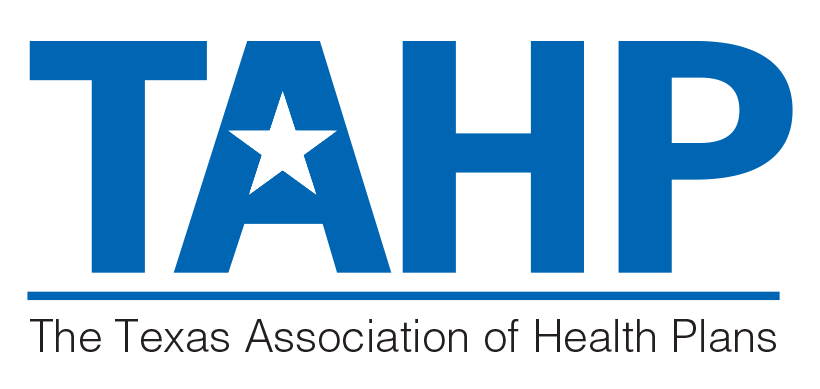
The Power of Prior Authorization
Complete Coverage

By: TAHP | Thursday, March 11, 2021
March 11, 2021
By: Jamie Dudensing
There are opportunities for Texas lawmakers to help lower the cost of health insurance for Texas families and employers, but broadly eliminating prior authorizations is not one of them. Unfunded government mandates that eliminate prior authorizations undermine important patient protections and drive up the cost of health coverage for Texas employers.
Texas is already the 14th most expensive state in the country for health care and 3rd for the most mandates. Even before the pandemic, small employers in Texas ranked the cost of health insurance as their number one concern. Eliminating prior authorization not only puts patient lives in danger, it also eliminates important protections against fraud, waste, and abuse.
Texans agree that checks and balances are needed in today’s health care system. In a recent survey to Texans, a majority of Texans agree that physicians “should have responsibility for managing and directing the patient’s care, but the insurance carrier should have responsibility for checking to see if the medical tests and procedures are covered and really necessary.” No other state has broadly eliminated prior authorizations, and Texas should not be the first.
The Truth About Why Prior Authorizations are Important
Prior authorizations protect patients from drug and service overuse.
A significant amount of care delivered to patients is not evidence-based and is dangerous. As Dr. Marty Makary, M.D., M.P.H., writes in his book, The Price We Pay, “Overtesting, overdiagnosing, and overtreatment are now commonplace in some areas of medicine.” Research has also highlighted significant gaps between evidence-based practices and the care delivered to patients. Doctors themselves believe that up to 30% of all ordered medical care is unnecessary or unsafe. Over 20% of diagnostic imaging is inappropriate, including over 60% of lumbar spine MRIs and over 30% of MRI studies for shoulder pain and knee pain.
Prior authorizations are an important check on fraud, waste, and abuse.
Health care fraud is a problem—Health care fraud in the U.S. is estimated to be $75 billion and 50% worse in the private market than in Medicaid.
Prior Authorizations help avoid duplicative, unnecessary and wasteful services.
We are already wasting billions of dollars on duplicative, unnecessary and wasteful services— between $200 billion and $800 billion is spent on unnecessary services ordered by doctors, such as repeated and excessive testing and treatment each year.
Prior authorizations protect patient lives.
Adverse drug events caused by doctor errors cause 3.5 million office visits and 1 million ER visits each year, affecting more than 7 million patients and costing almost $21 billion annually. About 30% of hospitalized patients have at least one prescription drug error. A study from Johns Hopkins suggests that doctor errors, including “unwarranted variation in physician practice patterns that lack accountability,” are now the third leading cause of death in the U.S.
Texas already has the strongest patient protections in the country for prior authorizations.
Health plans have a responsibility to protect patients with tools like prior authorization, and Texas has some of the strongest protections in the country when it comes to ensuring patients receive the appropriate type of care, including exemption from prior authorization in emergencies and the ability to appeal decisions to an independent doctor without additional cost. PAs in Texas are also already required to be evidenced-based (developed and adopted by the medical community) and transparent (publicly available on health plan websites).
While less than 25% of medical services have a PA requirement, PAs provide critical safeguards that help prevent harm, lower costs, promote appropriate use of medication and services, and ensure care is delivered at the right place and time. There are better ways to reduce paper work, but putting patients’ lives in danger and eliminating any checks on fraud, waste, and abuse is not one of them. For example, the 2019 Council for Affordable Quality Healthcare, Inc. (CAQH) Index report found that any kind of electronic health record adoption—partial or full—significantly reduces the cost of PA. Most providers still use manual processes despite the availability of online submission portals, and almost half of provider PA requests are still submitted by fax. The majority of health plans are taking steps to streamline the PA process for both prescription drugs (91%) and medical services (89%), and a majority (84%) reported that automation of the PA process is the biggest opportunity for improvement.
TAHP opposes any legislation this session that eliminates or limits prior authorization, as such legislation puts patients at risk for excessive, invasive, and unnecessary care.
Stay updated on the latest TAHP news

Articles written by TAHP’s team of policy experts that examine the research, trends, and impact of the most important health care policy issues facing Texas and the country today.

Weekly news clips assembled by the TAHP team that highlight the top headlines from the health insurance and health care worlds, as well as important political updates.
